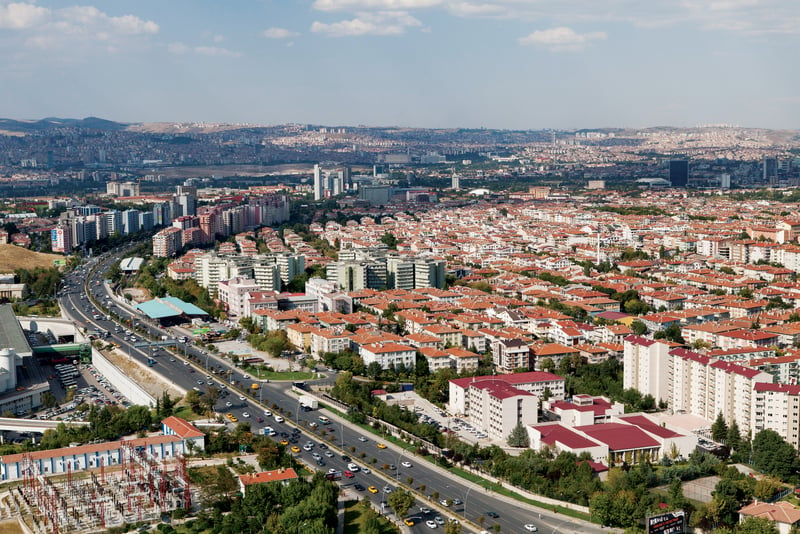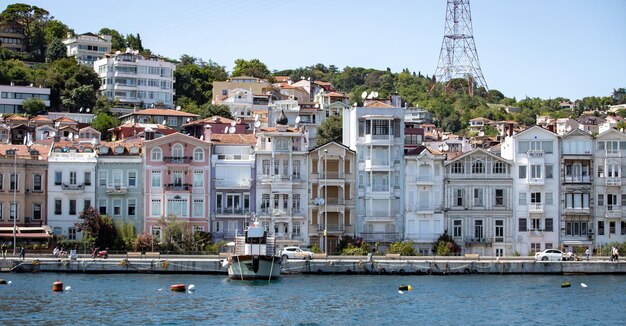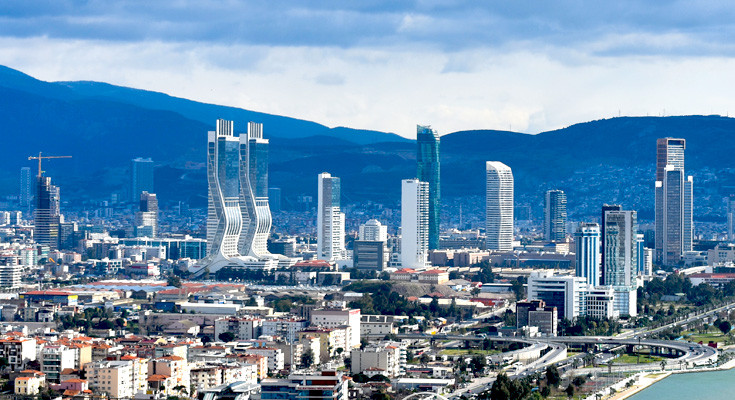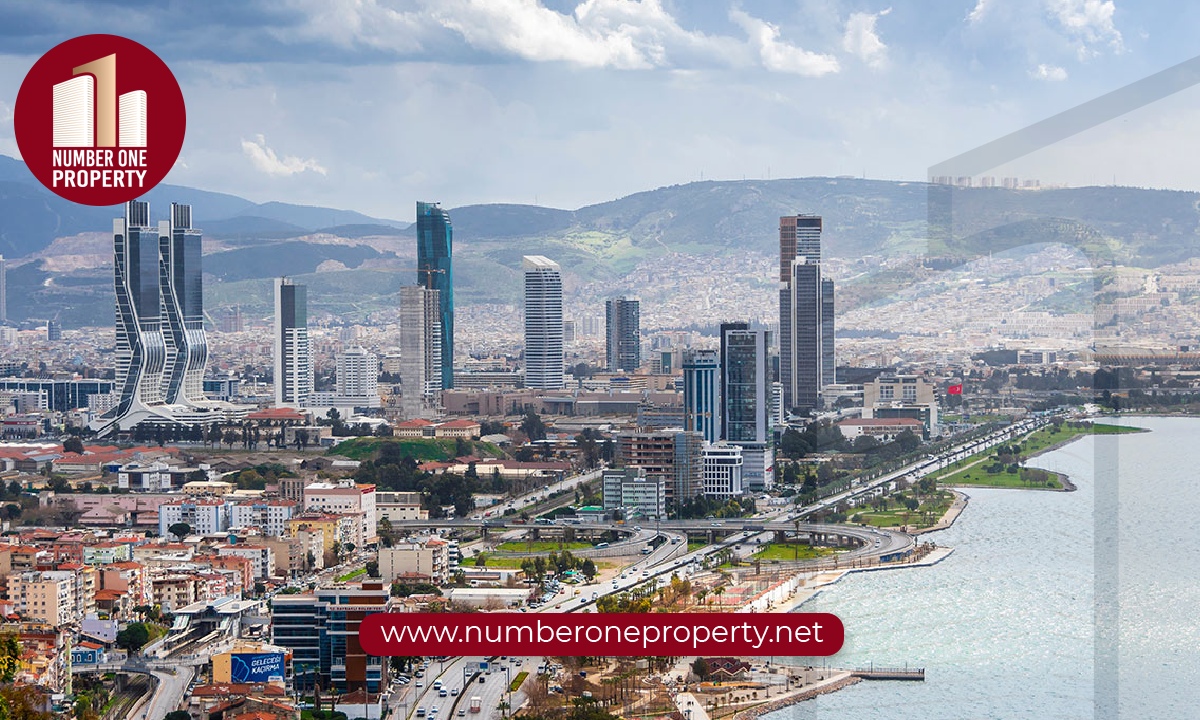Turkey, a vibrant nation straddling two continents, boasts a diverse array of cities that are rich in culture, history, and economic prowess. From bustling metropolises to serene coastal towns, each city contributes uniquely to the country’s wealth and prosperity.
Economic powerhouses are cities like Istanbul, Adana, Mersin, Kayseri, Kocaeli, and Konya. Sectors such as agriculture, textiles, and trade drive their significant contributions to Turkey's economy.
This article delves into Turkey's top 10 wealthiest cities, exploring their economic significance, cultural heritage, and the factors that make them pivotal to Turkey’s thriving economy.
Turkey’s Economic Hubs
Turkey’s economic landscape is shaped by its major cities, which serve as hubs for culture, financial power, and history.
The country’s strategic location between Europe and Asia makes it an attractive destination for trade and investment.
Cities like Istanbul, Ankara, and Izmir are major powerhouses for the economy and are populous metropolitan areas. Izmir, a major port city, plays a crucial role in international trade and logistics.
Bursa, Turkey's fourth largest city, is an economic center known for its contributions to the automotive and textile industries, and it holds rich historical significance as the birthplace of the Ottoman Empire.
The Capital City: Ankara

Ankara is the capital city of Turkey, located in the central part of the Anatolia region.
It has a population of over 5.8 million, making it the second-largest city in Turkey after Istanbul.
Ankara is a hub for performing arts and is home to several national theatre companies and the Presidential Symphony Orchestra.
Istanbul: The Cultural Capital and Third Largest City
Istanbul is the cultural capital of Turkey, with a rich history and cultural heritage.
It is Turkey's largest city, with a population of over 15 million.
Istanbul is a blend of Western and Eastern cultures, with a unique blend of ancient history and modern vibrancy.
Populous Cities and Economic Centers
The largest cities in Turkey are not just populated areas; they are centers of culture, history, and economic power.
Cities like Istanbul, Ankara, and Izmir are major economic centers, with a strong focus on industries like finance, tourism, and manufacturing. Istanbul, in particular, stands out as a highly populated city, rich in cultural significance and economic influence.
These cities contribute significantly to Turkey’s economy, making them major players in the country’s economic growth and development.
Cities with High GDP
Istanbul is the country’s richest city, contributing 30.5% to Turkey’s GDP.
Ankara and Izmir are also major contributors to the country’s GDP, with a strong focus on industries like finance, tourism, and manufacturing.
Cities like Adana, Mersin, Kayseri, Kocaeli, and Konya significantly contribute to Turkey's economy through sectors such as agriculture, textiles, and trade.
Other cities like Bursa and Antalya also have a high GDP, driven by industries like automotive and textile manufacturing, and tourism.
Factors Contributing to Wealth

Several factors contribute to the wealth of Turkey’s cities, making them pivotal to the nation’s economic landscape. One of the primary drivers is the country’s strategic location, which serves as a bridge between Europe and Asia, facilitating international trade and commerce.
Istanbul is the only city on two continents. It is a significant hub for finance and global trade, and its economy thrives on diverse industries, including finance, tourism, and manufacturing.
Cities like Antalya and Mugla owe much of their prosperity to their booming tourism sectors. Their natural beauty, combined with their rich cultural heritage, makes them major tourist destinations, attracting millions of visitors each year. This influx of tourists significantly boosts local economies and creates numerous business opportunities.
The automotive and textile industries also contribute to the wealth of cities like Kocaeli and Bursa. These cities are home to numerous manufacturing facilities and organized industrial zones, which are vital in driving economic growth. A skilled workforce and robust infrastructure further enhance their economic potential.
Agriculture is another key sector that underpins the economy of cities like Konya and Adana. Known for their fertile lands, these cities are major producers of crops such as wheat, sugar beet, and cotton.
The agricultural output from these regions supports local economies and contributes significantly to Turkey’s overall economic growth.
Economic Growth and Development
Turkey’s economy is increasing, with a strong focus on industries like finance, tourism, and manufacturing.
The country has several organized industrial zones and free trade zones, making it an attractive destination for investment and business.
Cities like Istanbul and Ankara are major drivers of economic growth and development, with a strong focus on innovation and entrepreneurship. Historical sites in these cities also contribute significantly to their economic growth by attracting tourists.
Quality of Life
Turkey’s cities offer a high quality of life, with a strong focus on education, healthcare, and infrastructure.
Cities like Istanbul and Ankara have a number of cultural and historical attractions, making them popular destinations for tourists.
Mugla is a major tourist destination, known for its beautiful beaches and vibrant nightlife, which significantly supports the local economy.
The country’s natural beauty, with its stunning landscapes and beautiful beaches, also makes it an attractive destination for tourists and investors.
Investment and Business Opportunities

Turkey’s cities are ripe with investment and business opportunities, making them attractive destinations for investors and entrepreneurs. The country’s free trade zones, particularly those in cities like Istanbul and Mersin, offer a favorable business environment with tax incentives and streamlined regulations.
These zones are designed to attract foreign investment and foster economic growth, providing a competitive edge for businesses operating within them.
The tourism sector presents significant investment opportunities, especially in cities like Antalya and Mugla. The construction of luxury hotels, resorts, and other tourist infrastructure can yield high returns on investment, given the steady influx of tourists drawn to these regions’ natural beauty and cultural attractions.
The automotive and textile industries also offer substantial opportunities for investment and business growth. Cities like Kocaeli and Bursa, known for their manufacturing prowess, provide a conducive environment for businesses in these sectors.
Investors can leverage the existing infrastructure and skilled workforce to establish and expand their operations, tapping into the robust demand for automotive and textile products.
Conclusion
In conclusion, Turkey’s cities are significant contributors to the country’s wealth and economic growth. Their strategic location, diverse industries, natural beauty, and rich cultural heritage drive their wealth.
These cities' investment and business opportunities make them attractive destinations for investors and entrepreneurs.
The top 10 wealthiest Turkish cities, including Istanbul, Antalya, and Mugla, are economic powerhouses that drive growth. These cities offer a unique blend of history, culture, and natural beauty, making them popular destinations for tourists and investors.
As Turkey grows and develops, its cities will play an increasingly important role in driving its economic success. With their rich history, cultural significance, and natural beauty, Turkey’s cities are poised to become major players in the global economy.
Read Also;
Information about Türkiye 1 - Amazing Facts
Information about Türkiye 2 - Topography and History, Administration, Economy and Culture
Information about Türkiye 3 - Tourism, Education, Religion and Daily Life


